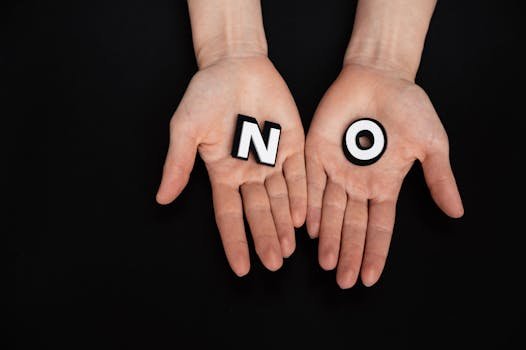Learning how to be assertive is a skill that empowers you to set boundaries, express your needs, and stay true to yourself—all without being rude or aggressive. By mastering assertive communication, you can handle difficult situations calmly, avoid unnecessary stress, and build stronger, more respectful relationships. Discover actionable tips to practice assertiveness effectively in everyday life.
There’s a famous saying that goes: “Saying no to others isn’t a bad thing. Accepting something just to please others, and then regretting it later, is the real problem!”
So, if you want to start practicing assertiveness, read on and follow these tips:
How to Be Assertive Without Overexplaining “No”

1. Assertiveness Is a Skill, Not an Overnight Change
Assertiveness is something you develop over time, not instantly. Start practicing assertive behavior in simple, everyday situations.
Examples:
- No thanks, I don’t need it!
- No, that’s too much. Please reduce it.
- Sorry, I can’t transfer the money. Can you use your card instead?
The more you practice saying no, the easier it becomes.
2. Overexplaining Leads to Trouble
When your answer is no, giving lengthy explanations often weakens your position. Like a broken record, stick to your no. That’s it.
Examples:
- Should I add an octane booster to the gas?
No, thank you. I don’t need it. - But it’s really good, imported even! I’ll give you a discount!
No, thanks!
Keep it short and simple.

3. Pause Before Responding
In complex situations, answering too quickly increases the chances of saying yes without thinking. So, practice pausing for a moment, taking a breath, and reflecting before you respond.
Pro Tip: People who try to pressure you often want you to make impulsive decisions. Pause, reflect on your priorities, and then decide.
4. Check Your Tone
Being angry and being assertive are not the same. Aggression is rarely seen as assertiveness. The best way to communicate your message is to remain calm and neutral. If you feel tense or agitated, wait until you’re calm before responding.
Example:
- Excuse me, these loaves are cold. I’ll wait for fresh, warm ones.

5. Assertiveness Opposes Stress
When you’re stressed, it’s harder to act assertively. If you feel overwhelmed, anxious, or guilty, take deep belly breaths to calm your body’s stress response. Only then should you react.
Example:
- Sorry, I don’t have the time for this.
6. You’re Not Responsible for Others’ Emotions
As long as you’re not harming anyone, you’re not responsible for how others feel. Don’t try to constantly check if your assertiveness upset someone.
Examples of Overcompensating:
- Are you upset? Please don’t be upset!
- I hope I didn’t offend you; I swear I didn’t mean it!
This shows over-caring. Remember, if there’s an issue, they’ll bring it up with you.

7. Work on Your Self-Esteem and Boundaries
The higher your self-esteem, the clearer your boundaries will be. And the more defined your boundaries, the easier it is to be assertive.
Example:
- Are you free this weekend for a gathering?
No, sorry. I have an important test on monday. Let’s meet next week!
What’s Your Opinion?
💬 What do you think about these tips? Have you tried any of them? Share your thoughts and experiences in the comments!


